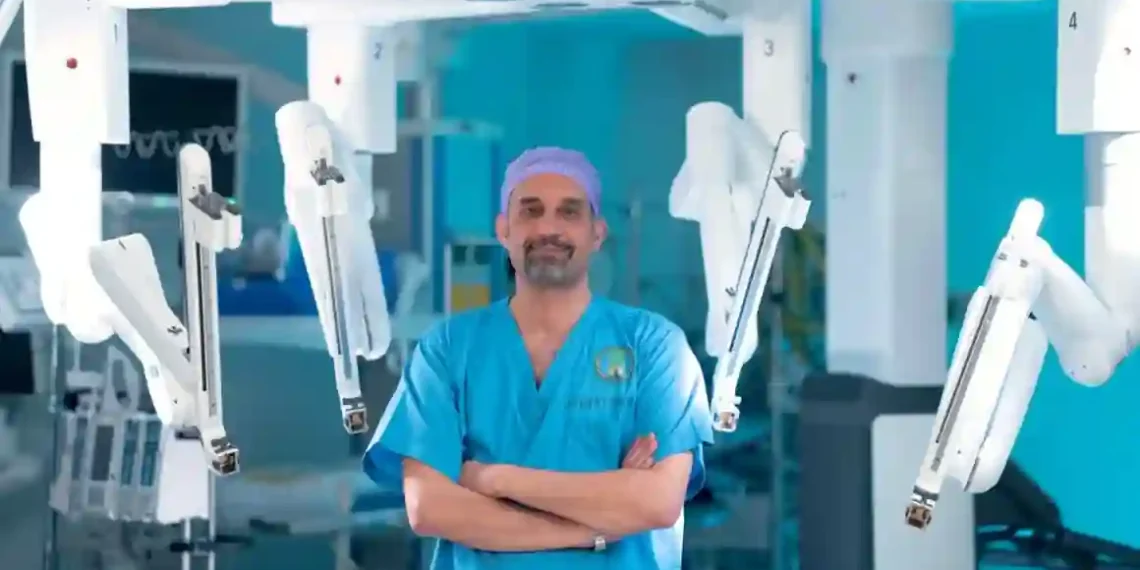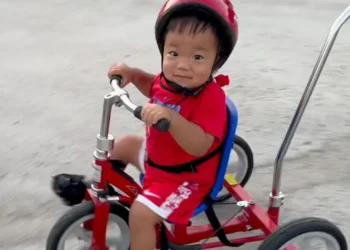Robotic Surgery Breakthrough in Saudi Arabia: A Life Saved, and a New Era Begins
In a world-first medical breakthrough, King Faisal Specialist Hospital & Research Centre (KFSHRC) in Riyadh has successfully performed the first-ever robotic-assisted implantation of an artificial heart pump, setting a bold new standard in advanced organ care.
A man in his mid-thirties had spent four long months hospitalized with advanced heart failure. His organs were beginning to shut down. A traditional open-heart surgery posed too many risks. But thanks to cutting-edge technology and medical expertise, hope arrived—in the form of a robot.
In a historic operation, Saudi cardiac surgeon Dr. Feras Khaliel led a team in implanting the HeartMate 3 device using robotic-assisted surgery. The result? A faster recovery, less trauma, and a life-changing chance at healing. Days after the procedure, the patient was already on the path to recovery, hopeful to reunite with his family.
Just a decade ago, such a story would’ve sounded like science fiction.
Robotic-assisted surgery isn’t brand-new—but it’s never been this advanced. Since its first appearance in 1985, the technology has rapidly evolved. Today, it’s becoming more precise, less invasive, and increasingly life-saving.
KFSHRC is leading the charge, with a clear mission: combine innovation, precision, and compassion to transform lives.
With robotic arms controlled by surgeons, 3D imaging, and tiny incisions, operations like the HeartMate 3 are now possible with far fewer risks. The benefits are undeniable—less blood loss, faster healing, and dramatically improved patient outcomes.
The impact is more than anecdotal—it’s measurable:
- Recovery time after robotic valve replacement: just 6.8 days, compared to 10.4 with traditional surgery.
- Cost savings: up to $17,000 per procedure in robotic coronary bypass surgery.
- Robotic surgeries at KFSHRC in their first year: over 100 performed.
- Robotic cardiac surgery survival rate: an astounding 98% across 400 surgeries.
As robotic programs expand beyond heart procedures to include liver transplants and other complex organ surgeries, the hospital is proving that high-tech medicine isn’t just the future—it’s already here.
KFSHRC has earned its place among the world’s elite. Ranked 15th globally among over 250 academic medical centers for 2025, it’s recognized not just for innovation but for consistent, high-quality care.
Its multidisciplinary teams—including doctors, engineers, nurses, and researchers—foster a culture of continuous improvement. That collaboration ensures breakthroughs don’t just stay in the lab—they’re put into action to save lives.
From local patients to international medical tourists and VIPs, KFSHRC is becoming a destination of choice for complex surgeries. With personalized care and pioneering technology, it offers something rare in today’s world: genuine hope for the most critical cases.
While robotic arms and imaging tools get the spotlight, the true power behind this innovation lies in the lives it touches. For patients like the man who received the world’s first robotic heart pump, the story isn’t just about a machine—it’s about a second chance.
As robotic surgery continues to grow, one thing is clear: the future of medicine is not only high-tech—it’s deeply human.
This article was rewritten by JournosNews.com based on verified reporting from trusted sources. The content has been independently reviewed, fact-checked, and edited for accuracy, neutrality, tone, and global readability in accordance with Google News and AdSense standards.
All opinions, quotes, or statements from contributors, experts, or sourced organizations do not necessarily reflect the views of JournosNews.com. JournosNews.com maintains full editorial independence from any external funders, sponsors, or organizations.
Stay informed with JournosNews.com — your trusted source for verified global reporting and in-depth analysis. Follow us on Google News, BlueSky, and X for real-time updates.














